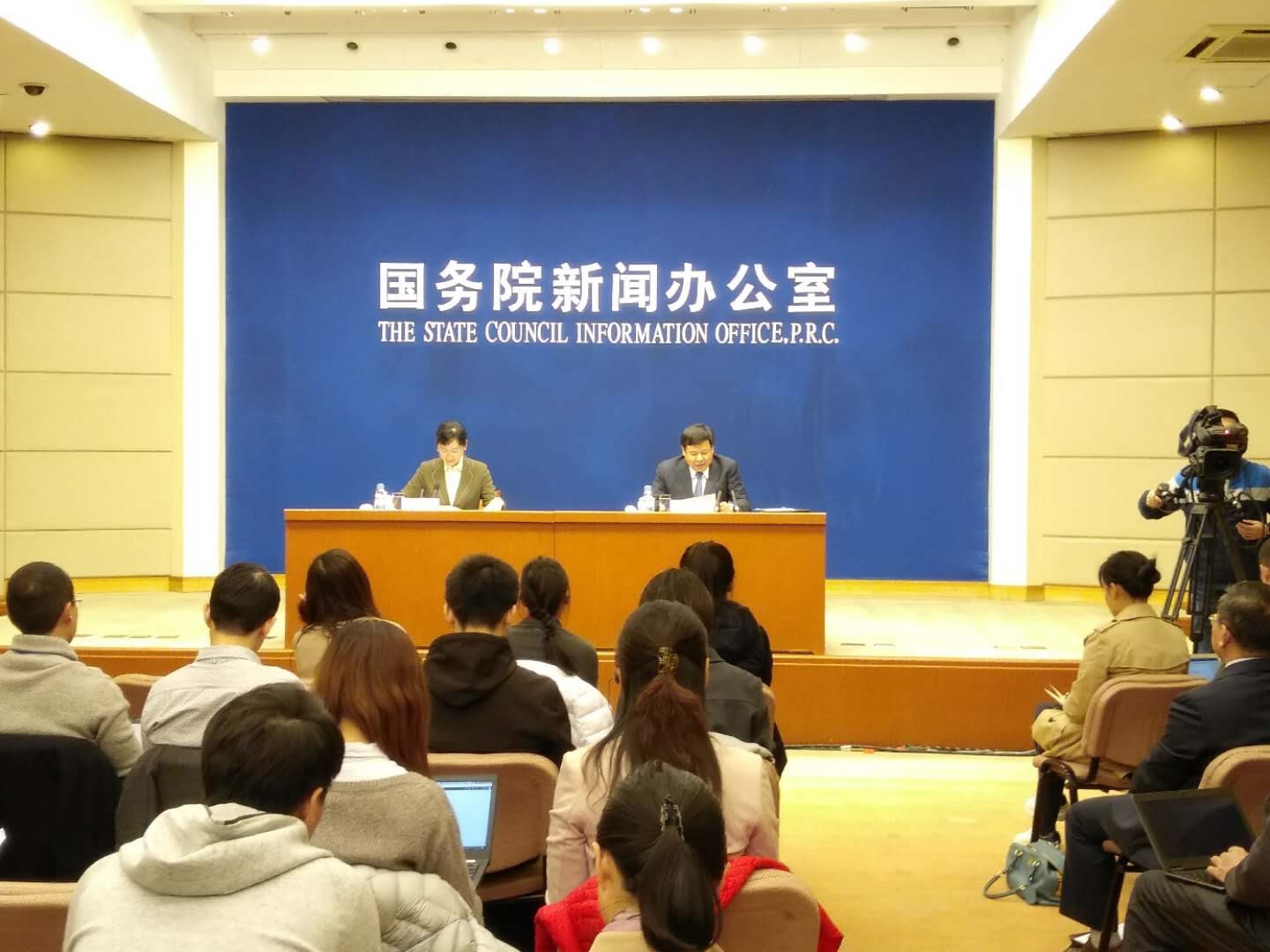
China
21:29, 10-Nov-2017
Vice Finance Minister on economic and trade outcomes of Xi-Trump meeting
By Su Yuting

Commenting on the economic and trade achievements made by China and the US during US President Trump's visit to China, Vice Finance Minister Zhu Guangyao says China will now push ahead with policies to further open up the economy in accordance with the decisions handed down from the 19th CPC National Congress.
In a press conference on Friday, Zhu Guangyao said the two leaders have drawn a blueprint for the future development of their bilateral relations, especially in terms of the economy and trade.
Zhu said China has announced specific measures to ease or lift investment restrictions in its financial markets for foreign companies.

CGTN photo
CGTN photo
Mentioning that there is a timetable and roadmap, Zhu went into the specifics: "Foreign businesses will be allowed to own as much as 51 percent of shares in a joint-venture in securities, funds and futures industries. The cap will eventually be phased out in three years. Current foreign ownership restrictions in Chinese banks and financial asset management companies will also be removed. In five years, no limits on investment proportions will be enforced for single or multi-foreign investors in setting up insurance companies providing life insurance."
The Vice Finance Minister said President Xi praised Trump's visit as "successful and historic."
The visit also saw the two sides sign deals worth more than a quarter of a trillion dollars, for products such as US-made jet engines, auto parts, liquefied natural gas and beef.

CGTN photo
CGTN photo
Zhu added that China will start a pilot scheme early next year, with the goal of relaxing restrictions on foreign firms working on new-energy or special-use vehicles. They will also lower tariffs for vehicles over time.
Zhu said that China has also urged the US to ease its controls on imports of high-tech Chinese products.
Closer commercial cooperation between China and the US is considered to be win-win. For the US, it will be able to increase exports to China, stimulate domestic industries, and create more job opportunities. For China, importing technologies, equipment and products from the US will help its industries move up to the medium-high end of the global value chain.

SITEMAP
Copyright © 2018 CGTN. Beijing ICP prepared NO.16065310-3
Copyright © 2018 CGTN. Beijing ICP prepared NO.16065310-3